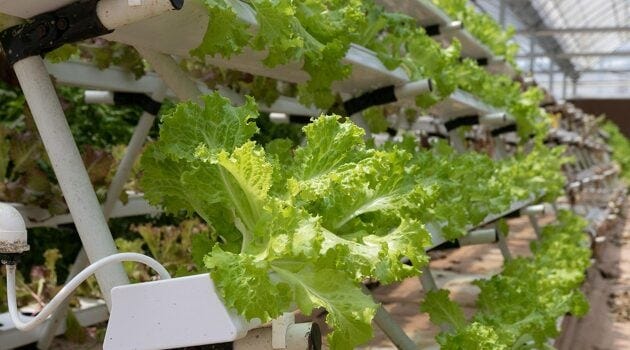Vertical Farming Takes Root in Iraq: A New Era for Agriculture?
Iraq is embracing vertical farming to enhance agricultural productivity and resource efficiency, marking a significant step towards food security and sustainable farming practices in the region. This initiative aims to modernize the agriculture sector and address challenges related to water scarcity and land use.
Strategic Goals
The introduction of vertical farming aligns with Iraq's broader strategy to diversify its economy and reduce reliance on oil revenues. By investing in innovative agricultural technologies, the country aims to:
Improve food security amidst growing populations and climate change challenges.
Create new employment opportunities in the agricultural sector, particularly for young Iraqis.
Reduce dependence on imported food products, strengthening local supply chains.
Promote sustainable farming practices that minimize water consumption and environmental impact.
Key Implications
The adoption of vertical farming could have profound implications for Iraq's agricultural landscape and the broader MENA region.
Increased Crop Yields: Vertical farms can produce significantly higher yields per square meter compared to traditional farming methods, optimizing land use.
Reduced Water Consumption: These systems often incorporate closed-loop irrigation and hydroponics, minimizing water waste in a region facing severe water scarcity.
Year-Round Production: Controlled environments enable continuous crop production, regardless of seasonal limitations, ensuring a stable food supply.
Improved Food Quality: Vertical farming allows for precise control over environmental factors, resulting in higher-quality, nutrient-rich produce.
Implementation Details
The initial phase of the vertical farming project involves the establishment of several pilot farms in key agricultural regions across Iraq. These farms will focus on cultivating a variety of crops, including:
Leafy greens (lettuce, spinach, kale)
Vegetables (tomatoes, cucumbers, peppers)
Herbs (basil, mint, cilantro)
The project also includes training programs for local farmers and agricultural professionals, equipping them with the skills and knowledge needed to operate and maintain vertical farming systems. Investment is coming from a mix of government initiatives and private sector partnerships.
Looking Ahead
The success of these initial vertical farming projects will pave the way for wider adoption across Iraq and potentially inspire similar initiatives in other MENA countries facing similar agricultural challenges. The long-term vision involves establishing a network of vertical farms throughout the country, contributing to a more resilient and sustainable food system. The potential for exporting agricultural expertise and technology to neighboring countries could also emerge, further strengthening Iraq's regional role. This initiative represents a forward-thinking approach to addressing food security and promoting sustainable development in the face of a changing climate.
Source: Iraq Business New


